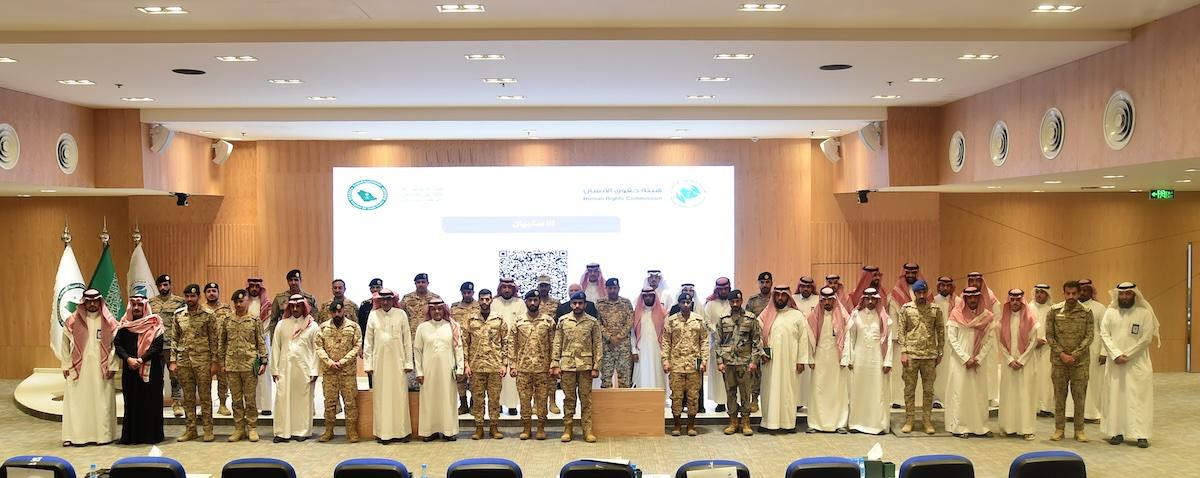The Conclusion of the Course on the Integration of International Humanitarian Law and Human Rights

The course on the integration of international humanitarian law and human rights, organized in Riyadh by the Standing Committee of International Humanitarian Law in collaboration with the Human Rights Commission, from March 4 to 6, was concluded. Participants expressed appreciation to the course organizers and speakers while expressing a desire for more of such educational courses in the future. The course, which was held at Human Rights Commission headquarters, aimed to enhance understanding and application of international humanitarian law and human rights among specialists from member authorities at the national and international levels. It also aimed to explore the relationship between human rights and Islamic Sharia provisions during armed conflicts, as well as to familiarize national leaders with laws safeguarding human protection in international humanitarian law. Additionally, the course aimed to highlight the supervisory role of humanitarian organizations in preventing human rights violations during armed conflicts.

During the session opening, Her Excellency Dr Hala bint Mazyed Altuwaijri, the President of the Human Rights Commission, discussed the areas of convergence and similarity between the two laws. She emphasized the Kingdom of Saudi Arabia's commitment to upholding international agreements and responsibilities, particularly those that uphold human dignity and rights. Dr. Altuwaijri highlighted that the Human Rights Commission collaborates extensively with the Standing Committee of International Humanitarian Law on various initiatives aimed at promoting human rights awareness, including the training and development of national personnel. This course is a product of such constructive cooperation.
The President of the Islamic Forum of International Humanitarian Law (IFHL), Dr. Fawzi Oussedik highlighted that “the international humanitarian law is applicable in both international and non-international armed conflicts. Conversely, Human Rights Law is applicable in times of peace and war.” He mentioned that with the implementation of the Rome Statute of the International Criminal Court, individuals become more susceptible to accountability of war crimes. Dr. Oussedik pointed out that the 1948 Universal Declaration of Human Rights includes specific provisions safeguarding victims from torture and inhumane treatment in armed conflicts, potentially elevating these acts to the level of war crimes.


Regarding Brigadier General Osama Darwish Damj, a knowledgeable figure in international humanitarian law, he clarified that once a territory falls under the effective control of a hostile force, regardless of whether the occupation encounters armed resistance or active fighting, the principles of international humanitarian law come into effect. He also mentioned that defending a state's neutrality through the use of force does not constitute taking part in military operations in support of any involved party in a conflict. Furthermore, he highlighted the utilization of regional organizations and agencies by the UN Security Council in peacekeeping operations.
This course was held as part of the Standing Committee of International Humanitarian Law's efforts to disseminate comprehensive knowledge on international humanitarian law. It featured the participation of numerous local and international experts and covered topics such as the legal frameworks safeguarding human well-being in times of peace and conflict, the requirements, restrictions, and implications pertaining to the enforcement of international human rights law in armed conflicts, preventive measures for safeguarding human rights during military operations, human rights considerations within Islamic Sharia in armed conflicts, the oversight function of humanitarian organizations in preventing human rights violations during conflicts, and the responsibilities of national leaders in ensuring, protecting, and advancing human rights in times of peace or war.
